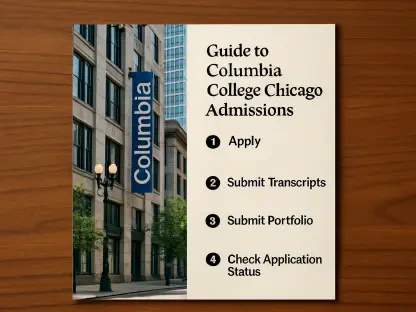In the rapidly changing world of higher education, artificial intelligence (AI) is proving to be a transformative force, especially in enhancing the postgraduate taught (PGT) student experience across UK universities. The Postgraduate Taught Experience Survey (PTES) serves as a critical tool for gathering feedback from this unique group through a mix of quantitative metrics and detailed open-text comments. However, the vast amount of qualitative data collected often presents a significant hurdle for institutions seeking to derive actionable insights. AI, particularly through machine learning, offers an innovative solution by processing this complex feedback at unprecedented speed and depth. This technology not only streamlines analysis but also uncovers hidden trends that can lead to meaningful improvements. By harnessing AI, universities are better equipped to address the specific needs of PGT students, a cohort often sidelined in favor of undergraduate priorities despite their strategic importance. This article delves into the profound impact of AI on interpreting PTES data and driving equitable, timely enhancements.
Elevating the Role of PGT Students
The significance of PGT students in UK higher education cannot be overstated, as they form a diverse and financially impactful segment distinct from their undergraduate counterparts. These learners often pursue advanced studies for career progression or specialized knowledge, bringing unique expectations and challenges to the academic environment. Despite their importance, PGT students frequently remain underrepresented in institutional strategies and research efforts. The PTES stands out as a vital mechanism for capturing their perspectives, offering a window into their experiences that might otherwise go unnoticed. AI amplifies the value of this survey by dissecting nuanced feedback, ensuring that the voices of PGT students are not just heard but acted upon with precision. This targeted approach helps universities recognize and address specific pain points, fostering an environment where postgraduate learners feel valued and supported in their academic journey.
Beyond individual needs, the growing enrollment of PGT students highlights their broader strategic importance to universities. As a key source of revenue and a link to industry partnerships, their satisfaction directly influences institutional reputation and long-term success. AI-driven analysis of PTES responses transforms raw feedback into a clear roadmap for tailored enhancements, allowing universities to prioritize initiatives that resonate with this cohort. This technology enables decision-makers to identify trends across diverse PGT demographics, ensuring that improvements are both inclusive and impactful. By leveraging AI, institutions can strengthen their appeal to prospective postgraduate students, positioning themselves as leaders in delivering a high-quality educational experience. The result is a mutually beneficial dynamic where PGT students thrive, and universities solidify their standing in a competitive landscape.
Overcoming Barriers in Feedback Analysis
Analyzing the qualitative feedback from PTES has long been a formidable challenge for higher education institutions due to the sheer volume and intricacy of open-text comments. Traditional methods, such as manual coding or cursory reviews, are not only labor-intensive but also susceptible to human bias, often missing critical insights buried within thousands of responses. This inefficiency can lead to delayed or incomplete actions, leaving student concerns unaddressed for extended periods. The complexity of interpreting varied sentiments and themes further compounds the issue, as staff may struggle to distill meaningful patterns without advanced tools. AI emerges as a pivotal solution, offering a systematic way to process this data with speed and accuracy, reducing the risk of oversight and ensuring that universities can respond to PGT feedback in a timely manner.
Scalability presents another hurdle in traditional feedback analysis, especially as PGT enrollment continues to rise across the UK. Manual approaches simply cannot keep pace with the growing volume of data, often resulting in backlogs that hinder institutional progress. This bottleneck risks student dissatisfaction, as delays in addressing concerns can erode trust in the university’s commitment to improvement. AI addresses this challenge by automating the analysis process, handling large datasets effortlessly while maintaining a high level of detail in its findings. By minimizing human error and maximizing efficiency, AI ensures that no piece of feedback is overlooked, providing a comprehensive view of PGT experiences. This technological advancement allows universities to stay ahead of emerging issues, fostering a responsive academic environment that prioritizes student well-being and satisfaction.
Transforming Insights with AI Technology
AI, particularly through machine learning algorithms, is fundamentally changing how universities interpret PTES feedback, turning vast amounts of data into actionable intelligence. By rapidly categorizing open-text comments into specific themes and assigning sentiment—whether positive or negative—this technology reveals granular insights that were once nearly impossible to extract manually. Such capabilities enable institutions to pinpoint exact areas of concern or satisfaction among PGT students, from course content to support services. This shift from static survey results to dynamic, real-time analysis empowers universities to make informed decisions swiftly, ensuring that enhancements align closely with student needs. The precision of AI in dissecting complex feedback marks a significant leap forward in how higher education institutions approach quality improvement.
The true strength of AI lies in its ability to amplify the student voice, ensuring that even the most subtle or underrepresented opinions are captured and considered. Unlike traditional methods that might skip over nuanced responses, AI identifies patterns and trends across expansive datasets, shedding light on what truly matters to PGT students. This comprehensive understanding allows universities to move beyond reactive measures and adopt proactive strategies that anticipate issues before they escalate. For instance, recurring themes in feedback about academic workload or mentorship can prompt immediate policy adjustments, enhancing the student experience in tangible ways. By leveraging AI, institutions can build a more inclusive and responsive educational framework, demonstrating a genuine commitment to listening and adapting to the diverse needs of their postgraduate community.
Ensuring Ethical AI Application
While the potential of AI to revolutionize PTES data analysis is immense, its implementation must be grounded in rigorous ethical and practical standards to deliver meaningful results. Sector-specific training tailored to the nuances of UK higher education is essential, ensuring that AI tools accurately interpret student feedback within the appropriate cultural and academic context. Generic algorithms often fall short in capturing the subtleties of PGT experiences, which is why customized models built on historical PTES data are critical for relevant categorization and analysis. Such frameworks prevent superficial outputs, instead providing deep, actionable insights that reflect the real concerns of postgraduate students. Adhering to these standards not only enhances the reliability of AI findings but also builds confidence among stakeholders in the integrity of the process.
Equally important is the integration of AI outputs into user-friendly, flexible dashboards that connect seamlessly with existing institutional systems. These platforms make insights accessible to decision-makers at every level, from academic leaders to administrative staff, facilitating swift and coordinated action. Without comprehensive tools, there’s a risk of misinterpreting data or failing to address key issues, which could undermine the entire purpose of leveraging AI. Ethical deployment also means prioritizing transparency in how data is processed and used, ensuring that student privacy is protected at every step. When implemented correctly, AI becomes a trusted ally in driving improvements, enabling universities to translate PGT feedback into equitable changes that resonate across diverse cohorts. This careful balance of innovation and responsibility paves the way for sustainable progress in higher education.
Paving the Way for Future Enhancements
Reflecting on the strides made, AI has already begun reshaping the landscape of higher education by providing a robust mechanism to analyze PTES data with unprecedented depth. The technology has proven its worth in uncovering critical insights from PGT feedback, allowing universities to address specific challenges that might have otherwise lingered unnoticed. Through machine learning, institutions have successfully transformed complex qualitative responses into clear, actionable strategies, marking a departure from the inefficiencies of manual analysis. This shift has laid a strong foundation for more responsive academic environments, where the unique needs of postgraduate students are prioritized with clarity and purpose.
Looking ahead, the next steps involve expanding the adoption of AI tools across more institutions while refining their capabilities to handle even larger and more diverse datasets. Universities should focus on fostering collaborations with technology providers to develop even more tailored solutions, ensuring that AI continues to evolve in alignment with the specific demands of higher education. Investing in training for staff to interpret and act on AI-generated insights will also be crucial, as will maintaining a steadfast commitment to ethical standards. By building on the progress achieved, the academic community can further unlock the potential of student feedback, driving continuous improvement in the PGT experience and setting a benchmark for innovation in education.









